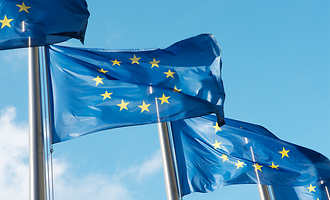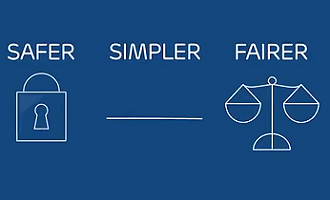Service Navigation
EMIR
European Market Infrastructure Regulation (EMIR)
As a result of the turbulences caused by the global financial crisis, regulators worldwide increasingly focus on derivatives markets. Given the enormous risks posed by the unregulated over-the-counter (OTC) market, there is a growing recognition that greater transparency in exchange trading significantly contributes to the future stability of the international financial markets. This is where the European Market Infrastructure Regulation (EMIR) comes in.
Objective
At the 2009 G20 summit in Pittsburgh, the members' heads of state and government came to the agreement that, by the end of 2012, all standardised derivatives contracts will have to be cleared through central counterparties (CCPs). In addition, large parts of OTC trading will have to be settled on a collateralised basis and reported to central trade repositories. Within the European Union, these objectives are implemented through EMIR.
The progressive implementation of the clearing obligation has shed light on complex and opaque OTC derivatives markets by simplifying the network of counterparties and has reduced their overall systemic risk by independently evaluating counterparty credit risk and ensuring proper collateralisation. Most importantly, the clearing obligation has helped ring-fence risks intrinsic to OTC markets to their main participants by organizing the mutualization of private losses, thereby protecting the broader financial system and avoiding future bail-outs by taxpayers.
Timeline
EMIR entered into force in August 2012. The obligation to report all derivative trades to a trade repository became applicable in late 2013. Most European CCPs were authorised as EMIR-compliant CCPs in the first half of 2014. The obligation to use a CCP to clear bilaterally agreed-upon trades has been phased from July 2016 until 2019 - though there are also exemptions to this obligation for specific counterparties or products/services.
Since then, EMIR has been reviewed twice. A targeted revision of EMIR, the EMIR REFIT, entered into force in June 2019. The REFIT mainly contains amendments aiming at ensuring the well-functioning of the regulation and bringing regulatory relief to smaller market participants on reporting and clearing. It notably introduced a minimum threshold for the clearing obligation to provide relief to small financial counterparties. In addition, it extended the exemption from the clearing obligation for pension funds arrangements by 2 years to June 2021 with the possibility to extend twice by 1 year, and included a mandate to assess an exemption from the clearing obligation for trades resulting from post-trade risk reduction services.
A second tranche of the review of the EMIR framework relates to thet CCP supervision, dealing with both the supervision of EU CCPs and with the authorisation and recognition requirements of third country CCPs. These changes have entered into force in January 2020. Following important Level 2 work for the application of the new framework adopted in autumn 2020, the ESMA CCP Supervisory Committee is responsible for the assessment and decision on recognition of third country CCPs based on their systemic importance to the EU.
In September 2020, the European Commission announced a time-limited and conditional equivalence to UK CCPs to avoid market disruption after the end of the Brexit transition period, while calling on the industry to reduce their exposures and reliance on UK CCPs that are systemically important for the EU. Notably, this additional time will allow the ESMA CCP Supervisory Committee to review the systemic importance of UK CCPs and conclude their assessment as to “whether a third country-CCP or some of its clearing services are of such substantial systemic importance that this CCP should not be recognised to provide certain clearing services or activities.”







